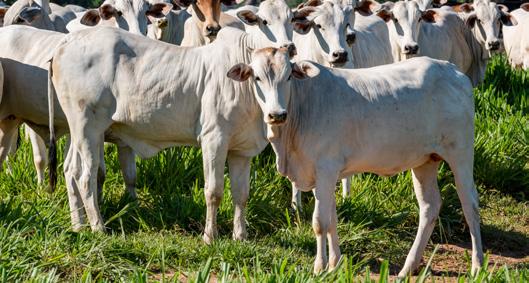
2 minute read
HIGH-RISK TRaDE DEaLS
11 July 2019, Brussels: Tractors at the European
Commission headquarters as farmers protest against the Mercosur trade deal. © Shutterstock The EU-Mercosur free trade agreementt (FTA) and related Association Agreement – which aims to increase trade in agricultural products like meat, soya and sugarcane, chemicals like pesticides, as well as manufactured goods such as cars and car parts – was agreed in principle in June 2019.181
Although the aims of the FTA fundamentally undermine climate action and nature protection, and conflict with the goals of the European Green Deal,182 its ratification remains under negotiation by the two blocs. A number of governments have reportedly raised concerns about the deal in light of rising deforestation rates, fires and lack of compliance with the Paris climate agreement in the Mercosur countries (particularly Brazil).183 Further, the proposed treaty does not include sanctionable clauses requiring the signatories to respect climate or environmental protection commitments.184 For example, while Article 6.2(a) of the deal mandates that each Party shall ‘effectively implement the UNFCCC and the Paris Agreement’, no mechanism is provided to meaningfully enforce this single provision.
Under the 2015 Paris Agreement on climate change, countries were expected by the end of 2020 to submit updated plans to reduce their GHG emissions and align with the goal of keeping the global temperature rise this century below 1.5ºC. According to the Climate Observatory coalition, ensuring Brazil – the world’s fifth-largest GHG emitter – is compatible with this goal would require a plan to reduce its emissions by 81% by 2030 compared to 2005 levels, with a net zero target of 2050. But Brazil’s revised submission, announced on 9 December 2020, reportedly falls well short, sticking to its previous goals of reducing net emissions by just 43% by 2030 and aiming for carbon neutrality by 2060. It also fails to reiterate its 2015 commitment to halt all illegal deforestation by 2030 and restore 12 million ha of forests – indeed, it fails to mention deforestation at all.185
It is against this background that the threat from FTAs must be judged. The aim of such agreements is to increase production, trade and consumption of exactly the commodities that the world needs to be producing and consuming less of. This cannot be fixed through the addition or alteration of articles.

6 June 2020, Corumbá, Mato Grosso do Sul: Pantaneiros (wetlands cowboys) moving cattle in the Pantanal. © Shutterstock










